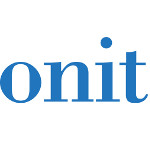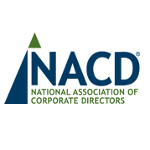By Justin Perkins
Contract Logix
With more than two-thirds of CEOs expecting their business models to change in the next three years, it’s no surprise that digital transformation continues to be a strategic priority for organizations of all industries and sizes.
What is surprising, however, is that a recent study by Gartner revealed an astonishing 81% of legal departments are not prepared to support their company’s digitization process. That’s a worrisome figure given that legal departments and the contracts they execute define our business relationships and are the backbone of any organization.
The good news for legal is that digitization, at least when it comes to contract management, has never been easier. By embracing software that’s built specifically to support contract lifecycle management, legal teams can shift from laggard to leader in the execution of their organizations’ digital transformation.
The question then becomes, where and how should a legal organization begin the process? Let’s look at the first and most critical step to take when setting the foundation for contract – and legal — digitization.
Digitize and Centralize All Your Contracts in Secure Repository
It’s not uncommon for legal departments to store contracts in shared folders across multiple locations and formats. However, centralizing your agreements into an electronic contract repository is the all-important first step towards the digital transformation of your contract management processes.
Think about how often you or your team need to reference or find an agreement. Whether you’re locating a specific detail or reviewing the entire contract before a renewal or termination, there are many reasons why an online, centralized repository is a foundational element to your legal digitization.
Not only will it keep your agreements organized, it greatly reduces the risk of contracts being lost, overlooked, and accessed by the wrong individuals. It will also allow you to access any document at anytime from anywhere on any device, and that ubiquity is a key component and driver for any organization’s digital transformation.
Another reason to digitize your contracts is so you can easily make use of the valuable data contained in them. Having the ability to capture, analyze, and report on data such as expiration dates, contract amounts, types of clauses used, and contacts will allow you to make much more informed business decisions. After all, digital transformation is all about improving your business processes and developing new business models.
As you begin the process of digitizing and centralizing your contracts – whether they are paper or already in electronic form – it’s’ important that your contract management system employs optical character recognition (OCR) technology. OCR automatically scans the content of your documents as you add them to the system regardless of their format. This ensures that all your contract data is easily found in the results of any search you perform, reports you run, or dashboards you create.
Takeaway
Centralizing all your contracts into a secure, electronic repository is the best and most logical starting point to achieving legal digitization. It may seem like a daunting task, but with help of contract management software, it’s not.
Cloud-based contract management software can be very easy and cost-effective to implement. You can start with a solution that meets the needs of your organization today. Then, as your requirements grow, you can add additional capabilities and user licenses.
Once you’ve built this foundation you can begin to embrace all the other wonderful features of contract management software that allow you to further execute your digital transformation strategy and put smiles on the faces of both your CIO and CEO.





